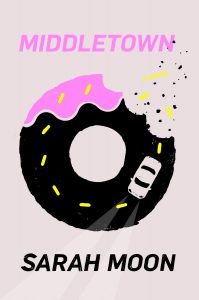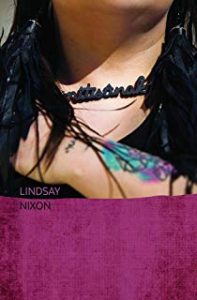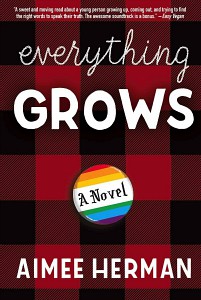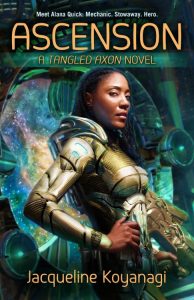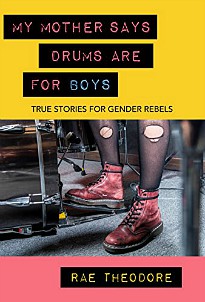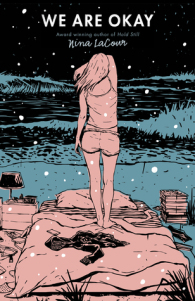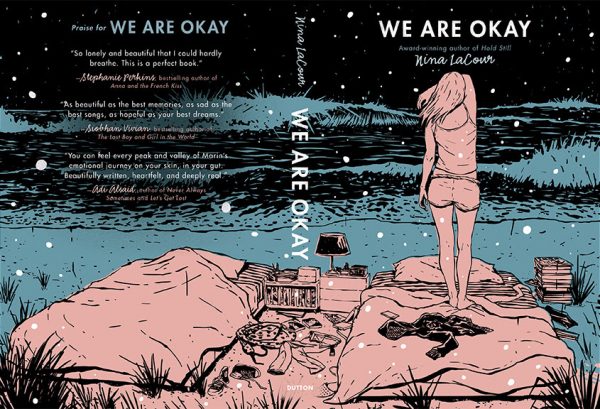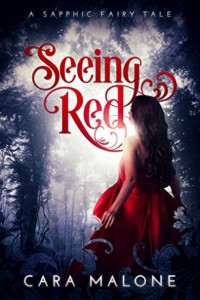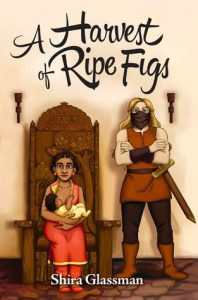Amazon Affiliate Link | Bookshop.org Affiliate Link
Eli and Anna know the routine. The cops come to the door in the middle of the night, Eli tries to look as young and adorable as possible, then Anna puts on eyeliner, grabs a beer from the fridge, and tries to sweet talk them into looking the other way about the two teenagers left alone while their mom is in the drunk tank. Soon, their mom will come home again, all apologies. Eli will forgive her immediately–though she doesn’t really buy the promises. Anna will run up to her room and slam the door. It’s not a great routine, but it is familiar.
Except that this night, something changes. Their mother has gotten her second DUI in about a month, and there’s no looking the other way. She has to go to rehab. But her being in rehab means social workers, and foster care, and splitting Eli and Anna–Peanut Butter and Banana, as they call each other–apart. They’re determined to find a way to stick together, including Anna pretending to be their aunt taking care of them. But the longer they have to keep up the act, the more it seems like their luck is about to run out.
Middletown is a YA novel from the point of view of a 13-year-old. Eli is struggling through middle school. She has to two great friends, Javi and Meena, but she doesn’t feel like she really fits in with them. Meena is gorgeous and has a picture-perfect home life. She’s also straight, and Eli has a hopeless crush on her. Javi is gay, obsessed with Drag Race, and he’s the principal’s son. They both have big, vibrant personalities, and Eli feels like she doesn’t belong with their duo. When she’s not around them, she’s bullied for being too “boyish”–and she can’t say they’re wrong. She doesn’t exactly feel like a girl or a boy. Or maybe she feels like both.
When her mom goes to rehab, she’s left with just her sister at home. Anna and Eli used to be inseparable, but Anna has changed. Once a girly soccer star, now she’s withdrawn, angry, dresses all in black, and she threw out all her soccer gear one afternoon without explanation. They need each other and they love each other–but they’re kids. Anna tries her best to take care of Eli, but they’re playing an impossible hand. They need to find money for groceries and rent, make food for themselves, keep the house livable, and not let on to anyone that they’re doing it alone. That’s not even mentioning trying to process their anger and pain at their mother’s neglect.
One of the things I appreciated the most about this story is the nuanced portrayal of addiction. Their mother hurt them, but she’s also not a villain. She’s a flawed person who also loves them deeply and has done a lot of good, courageous, and selfless things in her life. She’s just dealing with addiction. It also emphasizes that addiction is hereditary. We see the damage addiction can do, but we also see examples of recovering addicts and how that damage can be repaired or at least worked through. There are no easy answers, and people aren’t treated as disposable for struggling with addiction.
Of course, you’re reading a Lesbrary review, so there is also significant queer content here. Eli likes girls–Meena in particular–and is also questioning her gender. She’s still young and figuring herself out, so we don’t get any solid identity labels, but I imagine she will grow up to identify as non-binary. One of my favorite moments of the book is when Eli and Javi go to a production of Rocky Horror Picture Show. They both dress in drag, and it captures the magic of first encountering a queer community. It gives Eli a glimpse into an expansive future that will embrace whoever she ends up being, and I think that’s an incredible experience in any queer person’s life.
I don’t want to spoil anything, but the second half was my favorite, which involves a road trip and discovering family secrets–including more queer content. I love the complicated, resilient family portrayed here. They don’t always know what to say to each other, they can accidentally (or impulsively) hurt each other, but they love each other and try to be there for each other.
Read this one if you like: complicated, flawed, and loving families; road trips and family secrets; queer community and resilient friendships; characters questioning their gender; sneaky revenge on misogynists; or nuanced portrayals of addiction.
This has been a sponsored review. For more information, check out the Lesbrary’s review policy.

